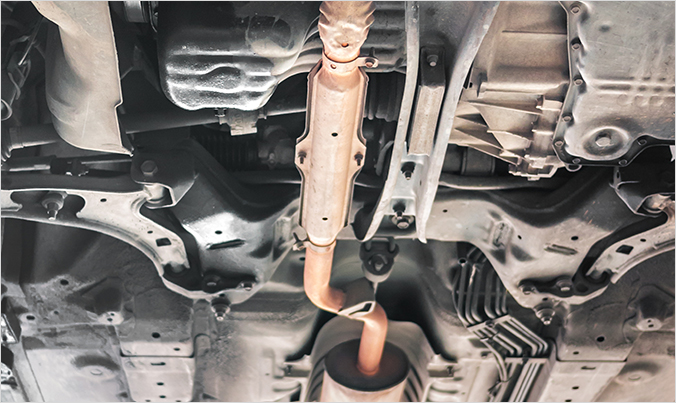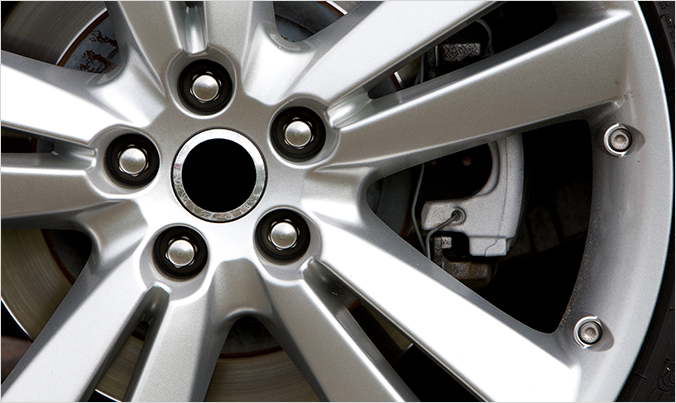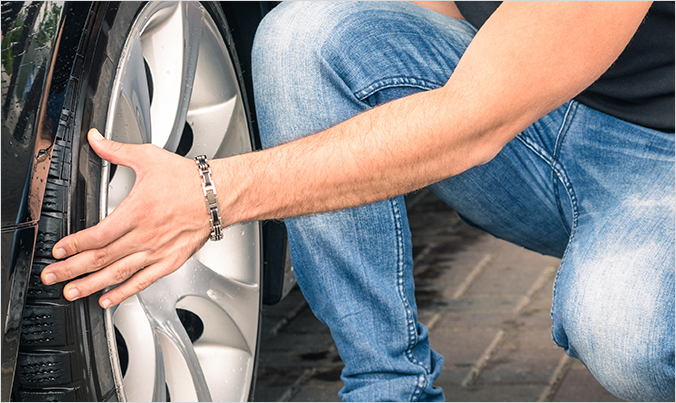
You probably pay much attention to the exposed upper-body of your car during your routine maintenance work, but what about the under-body that is not readily visible? Unlike the upper-body needing to be properly protected from external impacts, the under-body is prone to direct impacts from the road. That is why you need to pay more attention to it. Here are some tips on how to maintain some of its components.

The upper-body of your car, which is easily reachable, is easy to maintain because it is well protected with painting and coating. It is, however, a whole new different story when it comes to the under-body that is uncoated and totally exposed. It is faced with the direct impact of rain water, pebbles and dust that gets kicked up from the road while your car runs. It is particularly vulnerable in winter as it often comes into contact with chemicals from the road such as calcium chloride.
Corrosion of the under-body resulting from such external impacts often causes noise and vibration. Worsening corrosion may result in a malfunction of your car, potentially leading to a major accident. It is therefore wise to spray a coating agent containing tar or wax all over the under-body to prevent corrosion and perform under-coating on it to allow for metal components to be sturdier. Under-coating can also help resist water which will enable the corrosion process to be much slower and help reduce noise. Make it a rule to seek out an expert to inspect the under-body of your car on a regular basis, no matter how long you have run it.

Wheels are important since they connect your car with the ground. As the last component constituting the powertrain of your car, they support tires and sustain the full weight of your vehicle. They also play an important role in determining how your car looks on the surface. That said there are many who consider wheels to be nothing more than decoration. When they have a flat tire, they often replace the tire only, totally overlooking the wheel itself.
While driving, many things can impact the wheels, such as dust, earth, sand, pebbles and so on. They tend to stick harder to the wheels when they are hot due to travelling at high speeds. If not cleaned off properly, they may cause corrosion or deformation of the wheels.
Impaired wheels can also directly or indirectly impede proper braking and the life span of tires. It is therefore wise to clean every corner of the wheels when washing your car. Be sure to wait until the wheels are cold enough before startcing to wash your car because they are at risk of becoming deformed upon contact of cold water when they are hot.

Most drivers tend to not think much about their car tires until their cars become unable to move due to a flat tire. Checking tires must be part of your routine maintenance as they are directly linked to drive performance and, ultimately, the safety of the driver. Wearing and air pressure, in particular, must be checked on a regular basis.
Over-inflated tires are more prone to ruptures even after a mild impact and tend to skid more while driving. Under-inflated tires, on the other hand, have wider contact with the ground, resulting in their insides to overheat. This might lead to the wearing of the rubber or separation or cutting of tire cords.
Another element to look at is the wearing of the tires. Worn tires cause the braking distance to become longer due to less traction and make it difficult to steer your car. They are also more prone to rupture as they have a thinner layer of rubber. Make it a habit to check the depth of the grooves on the tread using a coin to ensure that they are less than 1.6 mm deep.
Want to have your precious car serve you longer while remaining in better condition?
Then you need to be meticulous enough to pay attention to the components that are not overly visible to you, and among them is the under-part of your car that comes under direct influence of all kinds of contaminants and impacts. The life span of your car and, ultimately, your safety will depend on it. 